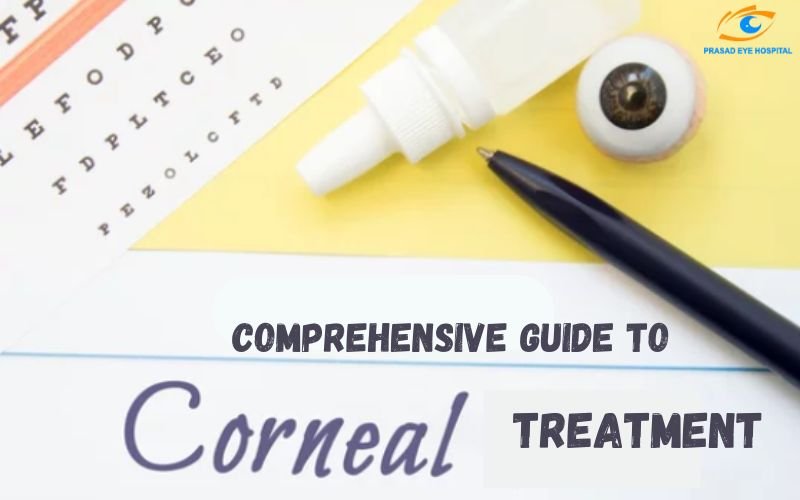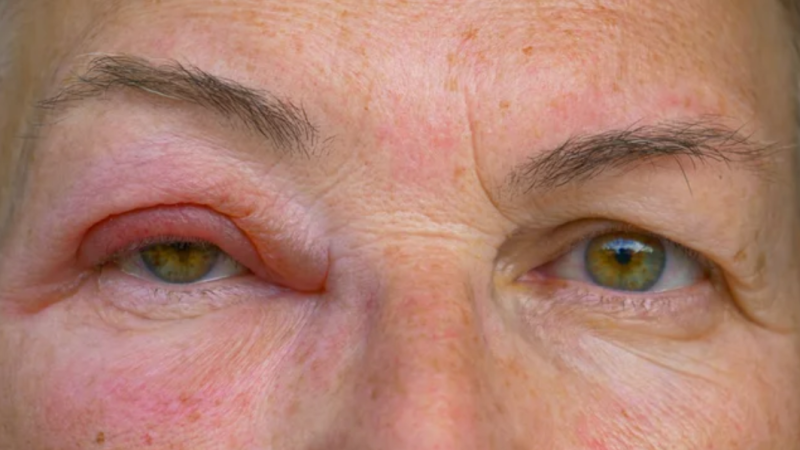
Introduction to Corneal Treatment
The cornea is the transparent, dome-shaped surface covering the front of the eye. It plays a crucial role in focusing light onto the retina, which is essential for clear vision. Problems with the cornea can lead to significant vision issues. At Prasad Eye Hospital in Ramgarh, Jharkhand, we are committed to providing advanced corneal treatment to help restore and preserve your vision.
Understanding Corneal Conditions
Common Corneal Disorders
- Keratoconus:
- Description: This progressive condition involves the thinning and bulging of the cornea into a cone shape, which distorts vision.
- Prevalence: According to the National Eye Institute, keratoconus affects approximately 1 in 2,000 people in the United States.
- Corneal Dystrophies:
- Description: These are genetic conditions where abnormal material accumulates in the cornea, impairing vision.
- Types: Examples include Fuchs’ dystrophy, granular dystrophy, and lattice dystrophy.
- Prevalence: Corneal dystrophies affect an estimated 1 in 1,000 people worldwide.
- Corneal Abrasions:
- Description: Scratches or injuries to the cornea caused by trauma, foreign bodies, or excessive rubbing.
- Treatment: Often treated with antibiotic eye drops and a protective eye shield.
- Corneal Ulcers:
- Description: Sores on the cornea usually caused by infections, such as bacterial or fungal infections.
- Prevalence: Studies show that bacterial corneal ulcers affect approximately 11-13 people per 100,000 annually.
Symptoms of Corneal Disorders

- Blurred or distorted vision
- Eye pain or discomfort
- Sensitivity to light
- Excessive tearing or discharge
- Redness or swelling of the eye
Advanced Corneal Treatments at Prasad Eye Hospital
1. Corneal Transplant Surgery
- Description: Corneal transplant, also known as keratoplasty, involves replacing a damaged or diseased cornea with a healthy donor cornea.
- Indications: Recommended for conditions like advanced keratoconus, corneal scarring, and corneal dystrophies.
- Procedure: The surgeon removes the damaged cornea and replaces it with a donor cornea, using stitches to secure it in place. The surgery is performed under local or general anesthesia.
- Recovery: Post-surgery, patients may experience blurred vision initially. Use of eye drops and avoiding strenuous activities is crucial. Follow-up visits are required to monitor the healing process.
2. Cross-Linking Therapy
- Description: Corneal cross-linking (CXL) strengthens the corneal tissue using a combination of riboflavin (vitamin B2) and UV light.
- Indications: Primarily used for treating keratoconus and corneal ectasia to halt progression.
- Procedure: Riboflavin drops are applied to the cornea, followed by exposure to UV light, which strengthens the collagen fibers in the cornea.
- Recovery: Patients might experience discomfort for a few days. Use of prescribed eye drops and protective contact lenses is necessary.
3. Laser Treatments
- Description: Laser treatments such as LASIK (Laser-Assisted In Situ Keratomileusis) and PRK (Photorefractive Keratectomy) are used to correct refractive errors by reshaping the cornea.
- Indications: Suitable for conditions like myopia (nearsightedness), hyperopia (farsightedness), and astigmatism.
- Procedure: A laser is used to precisely reshape the cornea, improving its ability to focus light. LASIK involves creating a flap in the cornea, while PRK involves reshaping the cornea’s surface.
- Recovery: LASIK patients often experience quick recovery, with improved vision within a day or two. PRK may require a longer healing period of several weeks.
Why Choose Prasad Eye Hospital?
Expertise and Experience
Our team of ophthalmologists at Prasad Eye Hospital has extensive experience in diagnosing and treating a wide range of corneal conditions. We employ the latest technology and advanced techniques to deliver the best possible results for our patients.
State-of-the-Art Facilities
Our hospital is equipped with the latest diagnostic tools and treatment technologies, ensuring accurate assessments and effective treatments.
Personalized Care
We believe in providing personalized treatment plans tailored to each patient’s specific condition and needs, ensuring comprehensive care and satisfaction.
Preparing for Corneal Treatment
Consultation
Before undergoing any treatment, a detailed eye examination is conducted to determine the most appropriate course of action. Our specialists will discuss your options and provide answers to any questions you might have.
Pre-Treatment Instructions
Follow any pre-treatment instructions provided by your ophthalmologist, which may include using prescribed medications or making certain lifestyle adjustments.
Post-Treatment Care
Follow-Up Visits
Consistent follow-up appointments are essential for tracking your recovery and ensuring optimal healing. Your ophthalmologist will provide instructions for post-treatment care and address any concerns.
Self-Care Tips

- Avoid rubbing your eyes
- Adhere to prescribed medication and eye drop usage
- Protect your eyes from bright lights, dust, and potential irritants
Book an Appointment
Taking the first step toward improving your vision is easy.
To schedule an appointment at Prasad Eye Hospital, simply contact us through our website or call our office directly. Our friendly staff will assist you in setting up a convenient time for your consultation. During your visit, our expert ophthalmologists will thoroughly assess your condition, discuss your treatment options, and create a personalized care plan tailored to your needs.
Don’t wait—take charge of your eye health today and book your appointment with us.
